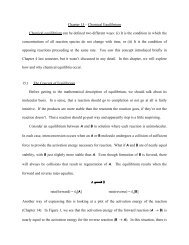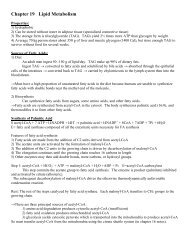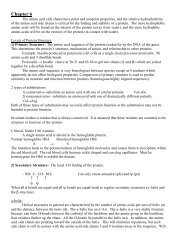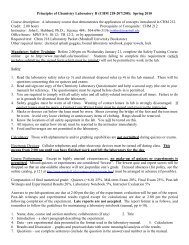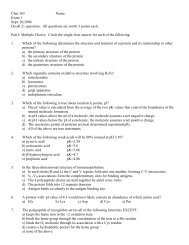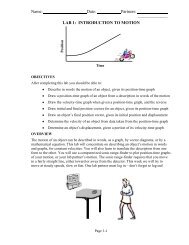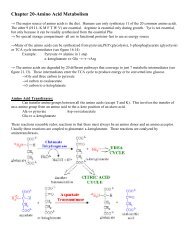THE DHAMMAPADA: THE WAY OF THE BUDDHA, VOL. 9-12 The ...
THE DHAMMAPADA: THE WAY OF THE BUDDHA, VOL. 9-12 The ...
THE DHAMMAPADA: THE WAY OF THE BUDDHA, VOL. 9-12 The ...
You also want an ePaper? Increase the reach of your titles
YUMPU automatically turns print PDFs into web optimized ePapers that Google loves.
<strong>12</strong>2 <strong>THE</strong> <strong>DHAMMAPADA</strong>: <strong>THE</strong> <strong>WAY</strong> <strong>OF</strong> <strong>THE</strong> <strong>BUDDHA</strong>, <strong>VOL</strong>. 9-<strong>12</strong><br />
which is real. If you learn to reflect, then the past is irrelevant, the future is irrelevant; the only relevance is that<br />
of the present.<br />
Be present to the present that is the meaning of reflecting.<br />
And the second thing: to quieten the mind, Buddha says:<br />
WATCH.<br />
What will you do when you reflect? You are not a dead thing, you are not like a dead mirror. Be like a mirror,<br />
but you can’t be dead you are alive. So what will you do? WATCH.<br />
You think, you imagine, but you never watch. Watching is a totally different process. It means you don’t have<br />
any likes, any dislikes. You don’t condemn anything, you don’t appreciate either. You simply see and you are<br />
aware and you are alert not dead like a mirror. You are aware. You are watching what is happening.<br />
You see a roseflower; you reflect it and you watch it. You don’t say anything about the rose. You don’t bring<br />
words between you and the rose because all those words are useless. When you are confronting a real rose why<br />
bring words in? Why destroy the reality of the rose by bringing interpretations of the past? You may be quoting<br />
great poets Shelley and Yeats but by quoting them you are bringing between you and the rose a barrier. Leave<br />
your eyes utterly empty but don’t fall asleep. Watch, just look silently. Be a witness.<br />
Watching means looking at things without any evaluation, neither saying it is good nor saying it is bad because<br />
nothing is good and nothing is bad. Things are simply what they are.<br />
A rose is a rose and a thorn is a thorn; neither the thorn is bad nor the rose is good. If man disappears from<br />
the earth, roses will be there, thorns will be there, but there will be nobody to say that roses are good and thorns<br />
are bad. It is our mind that creates these values. And these go on changing.<br />
Just a hundred years ago nobody would have ever thought to put a cactus in one’s home. A cactus is all thorns.<br />
If you had brought a cactus into your home, people would have thought you were mad, something had gone wrong<br />
with you! But now to grow roses in your home is orthodox. <strong>The</strong> avant-garde people grow cactuses; they are the<br />
really cultured people. <strong>The</strong>y keep cactus plants in their bedrooms too poisonous, dangerous, but the cactus is<br />
”in” and the rose is ”out.” Fashions change.<br />
In this century, ugly things have become beautiful and beautiful things have become ugly. Picasso is valuable<br />
one of the ugliest painters the world has ever known! Just two hundred or three hundred years ago he would have<br />
been forced to live in a mental asylum if he had painted things like this. He would have been thought insane,<br />
utterly insane, because the world of Michelangelo is a totally different world; a different valuation existed. <strong>The</strong><br />
world of Leonardo da Vinci is a totally different world.<br />
Fashions go on changing. Every day man goes on changing. Nothing is, in fact, good or bad, beautiful or<br />
ugly. It all depends on you. Whatsoever you start thinking is good, beautiful, becomes good and beautiful. A<br />
Jaina monk moving naked is thought to be great by the Jainas, but others think it a little obscene. Many times<br />
problems arise.<br />
Just a few days ago in a village, there was a riot because one Jaina monk entered in the town and the non-<br />
Jainas objected that a naked man walking inside the town.... ”This is bad for our children and our wives and our<br />
daughters.”<br />
I am not against nudity, but I am also not in favor of Jaina monks moving naked. My reason is totally different;<br />
my reason is that they look so ugly. Unless you have a beautiful body you don’t have the right to be naked. I can<br />
accept Mahavira moving naked. It is said that he had one of the most beautiful bodies and it seems so because<br />
all his statues are so beautiful. He must have had a very beautiful body, very proportionate. If he moved naked,<br />
that can be understood. To cover his beautiful body with clothes will not be right. But Jaina monks deliberately<br />
destroy their bodies. <strong>The</strong>y are masochistic people: they cripple their bodies in many ways. <strong>The</strong>y make them as<br />
ugly as they can, because the uglier your body is, the more respected you are. So they become caricatures. <strong>The</strong>y<br />
are cartoons, not real people. It is better to cover them in beautiful clothes.<br />
It depends what your criteria are, what your values are. But in reality, nothing is good and nothing is bad;<br />
things are simply what they are. If you witness then there is no question of choice. <strong>The</strong>n a choiceless awareness<br />
arises in you.<br />
That’s what J. Krishnamurti goes on saying; it is basically the message of Buddha. <strong>The</strong> followers of Krishnamurti<br />
think that he is teaching something very original. It has nothing original in it; it is essentially the message of<br />
Buddha. It is not J. Krishnamurti’s invention. In a different sense it is original; it is original in the sense that it<br />
is his experience. He also knows it as much as Buddha knew, but it is not new not original in the sense of being<br />
new. It is original in the sense that it has originated in him. He is not repeating Buddha, that is true. He is not<br />
imitating Buddha, that is true. He is simply saying what he has known. But whatsoever he has known is the<br />
same truth as Buddha’s truth.



